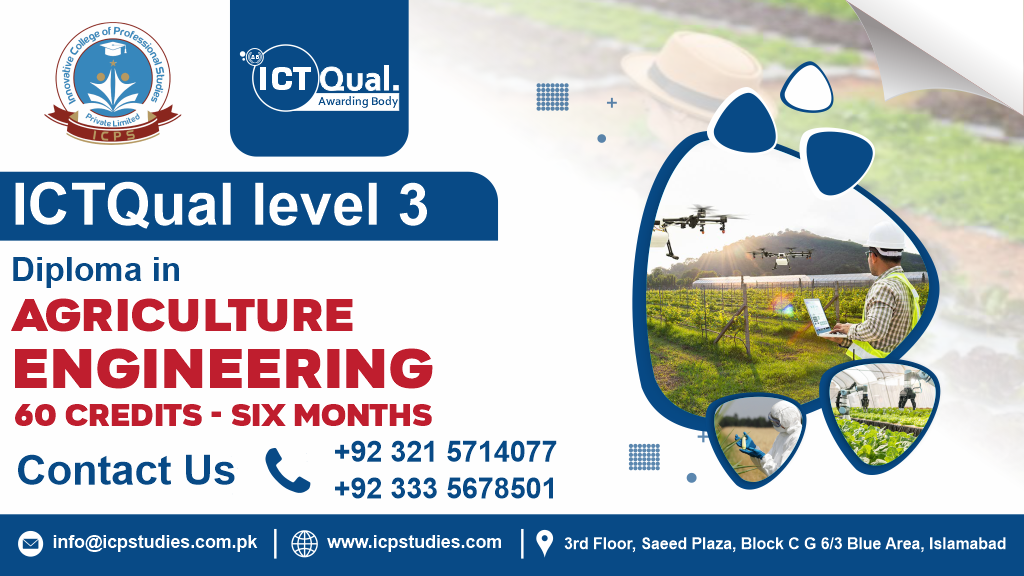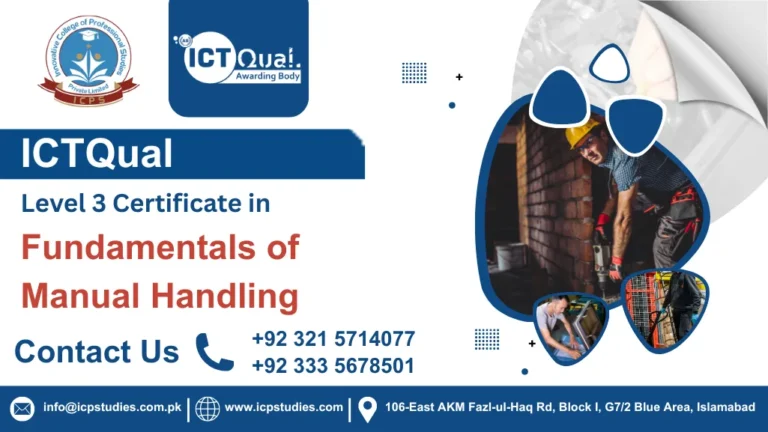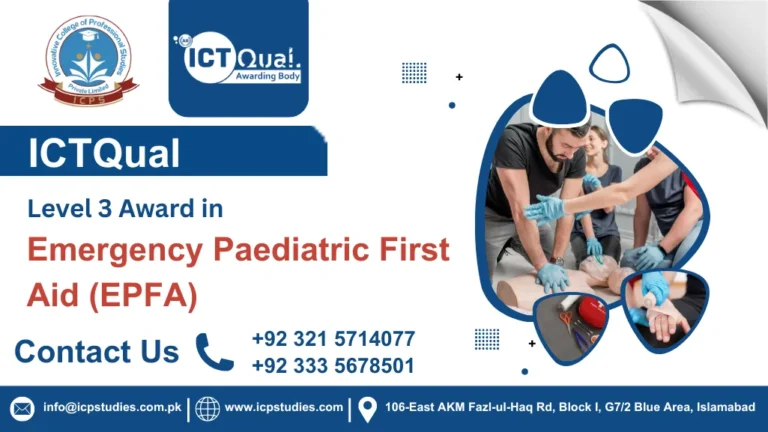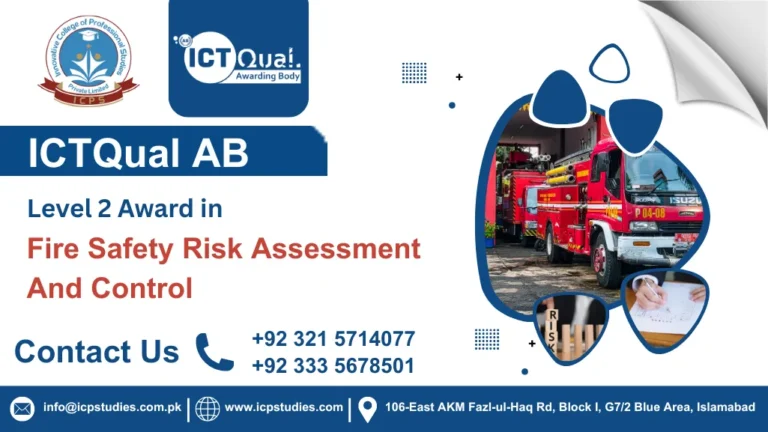The ICTQual Level 3 Diploma in Agriculture Engineering (60 Credits) is a comprehensive qualification designed to equip students with advanced skills and knowledge required to excel in the field of agricultural engineering. This six-month course provides an in-depth understanding of modern agricultural technologies, machinery, and systems, preparing individuals for higher-level roles in the industry. With a strong focus on both theoretical learning and practical experience, this diploma enables students to become proficient in operating, maintaining, and repairing agricultural equipment, while also understanding the essential aspects of sustainable farming.
The ICTQual Level 3 Diploma in Agriculture Engineering is a 60-credit qualification aimed at providing learners with the technical expertise needed to handle complex agricultural systems and machinery. This advanced course is suitable for individuals who have a foundational knowledge of agricultural engineering or related fields and wish to deepen their expertise.
The ICTQual Level 3 Diploma in Agriculture Engineering (60 Credits) offers a valuable opportunity for individuals seeking to advance their careers in the agricultural engineering sector. Over six months, students will gain in-depth knowledge and practical experience in advanced machinery operation, precision farming, sustainable practices, and health and safety regulations. With a focus on industry-relevant skills, this diploma ensures graduates are well-equipped to meet the demands of modern agriculture and take on leadership roles in the field.
All About ICTQual Level 3 Diploma in Agriculture Engineering 60 Credits – Six Months
Course Overview
The ICTQual Level 3 Diploma in Agriculture Engineering (60 Credits) is an advanced qualification designed to equip learners with the technical expertise needed to excel in the dynamic field of agricultural engineering. Over the course of six months, this program offers comprehensive training in modern agricultural technologies, machinery, and systems, preparing students for higher-level roles in the agriculture sector.
This diploma is ideal for individuals who already have a foundational understanding of agricultural engineering and want to expand their knowledge and skills. The curriculum covers essential areas such as advanced machinery operation, precision agriculture, sustainable farming practices, and health and safety protocols, combining both theoretical knowledge and practical experience.
By completing this 60-credit qualification, students will be ready to take on more complex tasks in agricultural engineering, manage machinery and equipment with confidence, and apply innovative technologies to improve farming efficiency and sustainability. Whether you’re aiming to advance in your current career or seek new opportunities in agricultural engineering, this course provides the skills and credentials to help you succeed in this ever-evolving industry.
Study Units
- Introduction to Agriculture Engineering
- Farm Machinery and Equipment
- Irrigation Systems and Water Management
- Soil Science and Crop Management
- Renewable Energy in Agriculture
- Agricultural Project Planning and Management
To enroll in the ICTQual Level 3 Diploma in Agriculture Engineering (60 Credits), applicants should meet the following entry requirements:
- Previous Educational Background:
- A Level 2 qualification in Agricultural Engineering, Mechanical Engineering, or a related field is highly recommended. Alternatively, applicants with a similar vocational qualification or relevant industry experience may be considered.
- Basic Knowledge of Agriculture and Engineering:
- A foundational understanding of agricultural processes, machinery, and basic engineering principles is beneficial for applicants. This ensures that learners can build upon their existing knowledge and grasp the advanced topics covered in the course.
- Mathematical and Technical Skills:
- Applicants should have a basic proficiency in mathematics and technical skills, as these are essential for understanding machinery systems, calculations, and project management tasks within the course.
- Work Experience (Preferred but Not Required):
- Practical experience in agriculture, farm management, or machinery operation is advantageous but not mandatory. This will help students better relate theoretical concepts to real-world applications.
- English Language Proficiency:
- Applicants whose first language is not English should have a good command of the language, both spoken and written, to ensure they can fully engage with the course content and complete assignments.
- Motivation and Commitment:
- As the course is intensive and requires focus, students must be committed to completing the six-month program, actively participating in both theoretical learning and practical training.
If you meet these requirements and have a keen interest in advancing your career in agricultural engineering, the ICTQual Level 3 Diploma is a great opportunity to enhance your expertise and skills in this exciting field.
The ICTQual Level 3 Diploma in Agriculture Engineering (60 Credits) is designed for individuals who are passionate about agriculture and engineering and wish to pursue or enhance their careers in this field. This course is suitable for:
- Aspiring Agricultural Engineers:
Individuals looking to advance their technical expertise in agricultural engineering, with a focus on operating, maintaining, and repairing advanced agricultural machinery and systems. - Farm Managers and Supervisors:
Those already working in farm management or as supervisors who wish to enhance their understanding of agricultural technologies and improve the efficiency of farming operations through advanced machinery and sustainable practices. - Technicians and Mechanics:
Individuals with a background in machinery maintenance or mechanical engineering who want to specialize in agricultural equipment, including precision farming technologies, irrigation systems, and farm machinery. - Sustainability Advocates in Agriculture:
People interested in implementing sustainable farming practices, renewable energy solutions, and precision agriculture to enhance productivity while reducing environmental impact. - Vocational Learners or Graduates:
Those who have completed a Level 2 qualification in agricultural engineering, mechanical engineering, or a related field and want to deepen their knowledge to progress in the agricultural engineering sector. - Career Changers or Industry Professionals:
Individuals from other engineering or technical fields who are interested in transitioning into agricultural engineering to take advantage of growing opportunities in the agriculture and farming sectors.
If you have a keen interest in modern agricultural technologies and want to play a role in shaping the future of farming, this course offers the skills, knowledge, and credentials you need to succeed in the agricultural engineering industry.
Learning Outcomes
Below are the learning outcomes for each of the study units in the ICTQual Level 3 Diploma in Agriculture Engineering program:
1. Introduction to Agricultural Engineering
Upon completing this unit, learners will:
- Understand the role and scope of agricultural engineering in modern farming practices.
- Identify key components of agricultural systems and explain their interdependence.
- Recognize the significance of sustainability in agricultural practices.
- Demonstrate knowledge of basic agricultural technologies and their real-world applications.
2. Farm Machinery and Equipment
Upon completing this unit, learners will:
- Identify various types of farm machinery and understand their specific functions.
- Perform routine maintenance and carry out minor repairs on agricultural equipment.
- Apply industry-standard safety protocols while operating machinery.
- Assess the impact of mechanization and automation on farm productivity and efficiency.
3. Irrigation Systems and Water Management
Upon completing this unit, learners will:
- Understand the principles of effective water management in agriculture.
- Distinguish between various types of irrigation systems and their specific applications.
- Install and maintain irrigation systems for optimal performance and water efficiency.
- Develop sustainable strategies for water usage in agricultural operations.
4. Soil Science and Crop Management
Upon completing this unit, learners will:
- Evaluate soil properties and determine their suitability for different types of crops.
- Apply techniques for soil testing and enhancing soil fertility.
- Design crop rotation and pest management plans to maximize yield and reduce environmental impact.
- Address common challenges in crop production using innovative agricultural practices.
5. Renewable Energy in Agriculture
Upon completing this unit, learners will:
- Understand the potential role of renewable energy in advancing agricultural sustainability.
- Identify and evaluate solar, wind, and biomass energy systems for use in agricultural operations.
- Design and implement energy-efficient practices to reduce energy consumption in farming.
- Analyze the economic and environmental benefits of adopting renewable energy sources in agriculture.
6. Agricultural Project Planning and Management
Upon completing this unit, learners will:
- Develop detailed plans for agricultural projects, including resource management and allocation.
- Effectively manage budgets and timelines to ensure the successful completion of agricultural projects.
- Identify and address risks associated with farming operations and projects.
- Evaluate project outcomes with a focus on sustainability and scalability for long-term success.
FAQs about ICTQual Level 3 Diploma in Agriculture Engineering 60 Credits – Six Months







